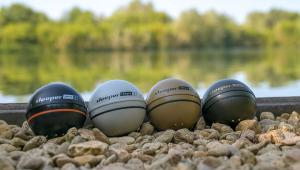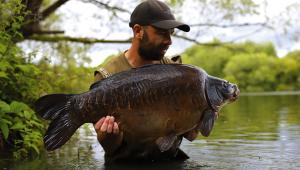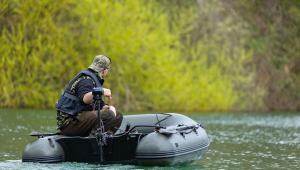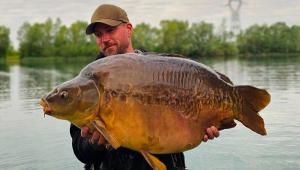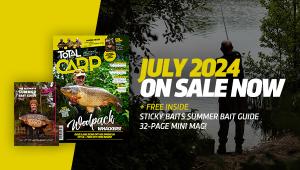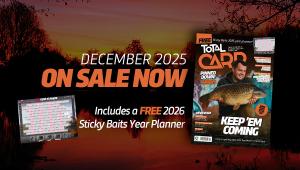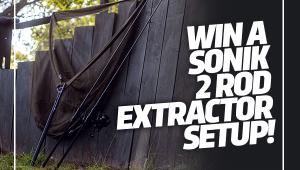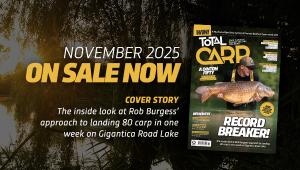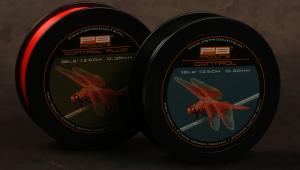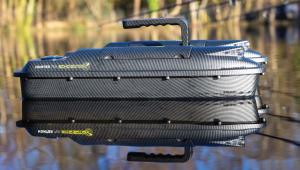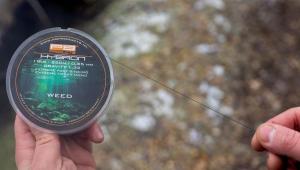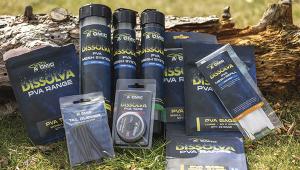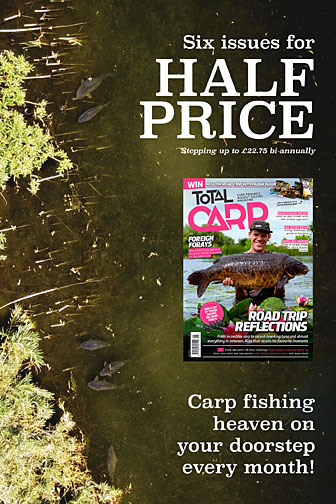From Dusk ‘til Dawn
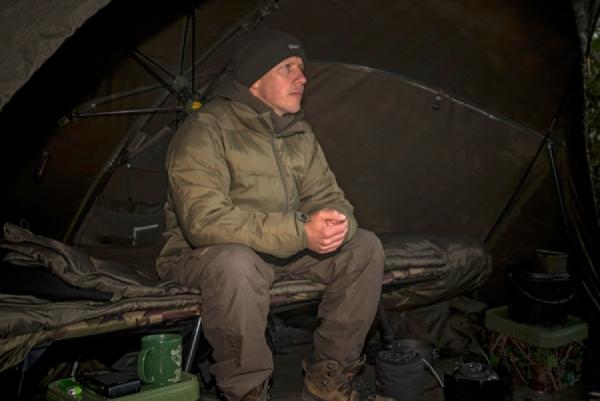
From Dusk ‘Til Dawn
A busy work and family life, combined with a burning passion for carp fishing, Duncan Arrandale believes that you should make the most of the hours of darkness while on the bank.
I’ve been a carp angler for more years than I care to admit to, and one thing that I think is hugely underutilised are the hours of darkness. This is obviously exaggerated in the winter months, but even in the warmer months where it stays light until 8pm and onwards I see time and time again that people do not make the most of their time on the bank during these periods. The lake is often quieter, the surrounding roads will become quieter too, and there are many things to exploit during this time.
Being busy with work and a young family has probably forced my hand over the years to arrive at the lake post tea time on occasion, when the day’s light has completely gone, and I need to do everything in total darkness. The first, and one of the most important things about preparing and casting your rods, choosing your swim or getting your gear set up, is to banish your head torch. Treating your eyes to a bright, white light while you’re setting up not only blasts the surrounding area as you frantically get things ready, but it actually has the reverse effect in terms of sight. If you avoid using it and allow your eyes to adjust, then you’ll be surprised just how many different tasks you can complete with just the minimal natural light. A head torch is in my opinion false economy, and you’ll be much more efficient without one.
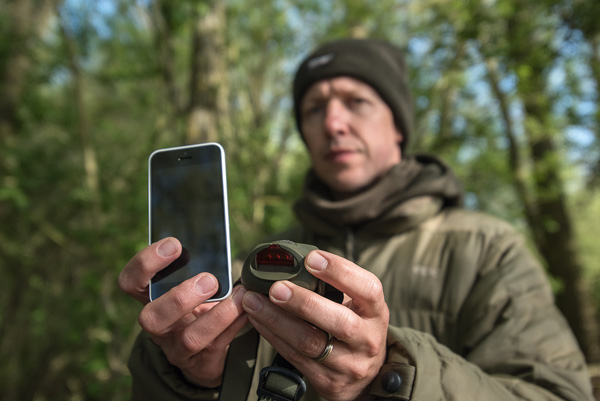 Don't ruin your night vision with bright lights.
Don't ruin your night vision with bright lights.
Before settling into your swim it’s always worth looking for activity, yes, I know it’s dark but you will see the silhouettes poke up, especially when the moon is bright on clear nights and if the wind is up creating a bit of white water on the waves. Listening for shows is often very productive in the hours of darkness too and it’s surprisingly easy to get a fairly accurate direction doing so, but distance can be a little harder to predict. Putting yourself on the windward end of the lake will carry the noise of any surface splashing too, so it’s always worth spending some time in the teeth of the wind on your walk round the lake just in case. I did once hear a show on my walk round in the dark and after setting up and getting a rod out to the area, managed to pick up a mid-twenty in cold February conditions, so it definitely works.
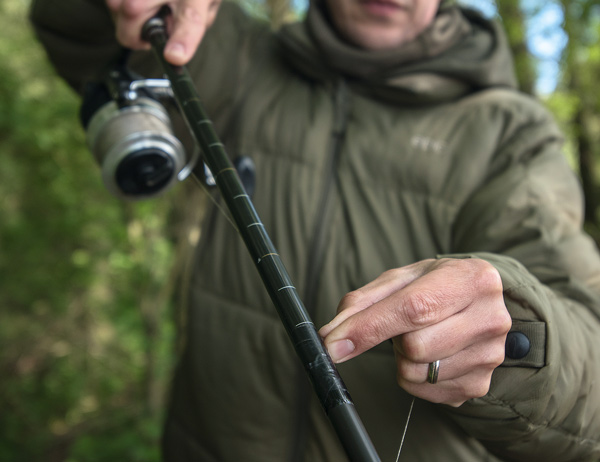 Accuracy is essential when you have limited time.
Accuracy is essential when you have limited time.
I will always look for a slight slope to fish on too, it just seems to produce more fish for me. When I’m markering up I always use a black float as I feel it’s less conspicuous when being dragged through the water. When it’s dark you’re only looking for the silhouette to pop up anyway so colour is irrelevant. The well documented wrapping technique will allow you to be accurate between your fishing and markering rods, but when I’m plumbing the depth I have a wrap of electrical tape around my blank at a foots measurement so I can feel it as I run my finger down the blank. This stops me from using my head torch for another task, which again prevents my eyes from having to adjust all the time, making my vision much clearer at a second’s notice to locate shows. Another useful edge when measuring with wrapping sticks is to use the rod blank to measure the distance between full wraps, like each ring, the spigot or noticeable parts to the blank. It saves marking the floor and having to use your head torch to find the mark. In depths of up to 10ft I will clip my fishing rods and spod rod to the same mark. I’ve been out on a boat at Stoneacres in the past after setting up, fishing and baiting in the dark and found it to be perfectly accurate – probably down to the stretch in mono compared to no stretch in the braided spod rod. If I’m in the extreme margins I will bait by hand, similarly, if I want a spread of boilies then I’ll use my throwing stick.
Once you’ve mastered setting up, baiting and fishing in the dark, there’s still no need to reach for that head torch. Other than putting a boilie on your hair rig, which I’ll still only use a much dimmer red light on my head torch for, there’s no need to use it while landing your fish. If you’ve prevented using one this far, then your eyes will be adjusted well enough to draw the fish over your net cord and once it is close to the spreader block, which is easy to see in low light, you can simply lift the net around it. There’s absolutely no need to flick your head torch on and spook the fish in the margin and cause it to dart off back into the depths.
While your waiting for that bite, watching the water in low light and listening for activity, watching a film on your phone, checking Facebook continuously or blasting the radio will only undo all of the hard work you’ve already done. If a fish crashes while you’re watching Coronation Street, you’ve got no hope of seeing the surface ripples, so just leave your devices in the bag.
Knowing your lake will give you a huge advantage when setting up in the dark. If you make notes, which I urge you to do, then turning up to a swim and noticing fish crashing either by sight or sound, then knowing what spots are in front of you will enable you to get fishing quicker, and more importantly, with less disturbance. When you do make your notes, go into detail. Note where you’re casting from in the swim, where your rod tip is positioned when it’s hitting the clip and most definitely a far-bank marker. Using the tree line will be easier to pick out as a silhouette in the dark rather than a low lying post surrounded by a hedgerow for example. You simply won’t find that in the dark, not without the head torch anyway. I also make notes of captures, areas they’re caught from and the weather conditions because you never know what little note could lead to catching your target fish.
There is no substitute for time in carp fishing. The more hours you can do on your venue, the more you should be learning. By learning equally as much through the nights as you do in the daytime will undoubtedly assist you in catching more frequently, and having the ability to get set-up and fishing accurately in the dark will be incredibly useful. Spending overnight sessions in the week at the lake rather than in front of the television is much more rewarding to me, and let’s not forget how valuable first light can be for fish spotting. If you’re there to witness a fish crash out at the other end of the lake after your quick session in the dark, then you know exactly where you’ll be checking first on your next visit. Give it a go, you can only learn and improve at this by getting out and doing it. Don’t be scared, you’ll be surprised how quickly you adapt to it, and stay motivated; you never know how close you are to catching that fish.
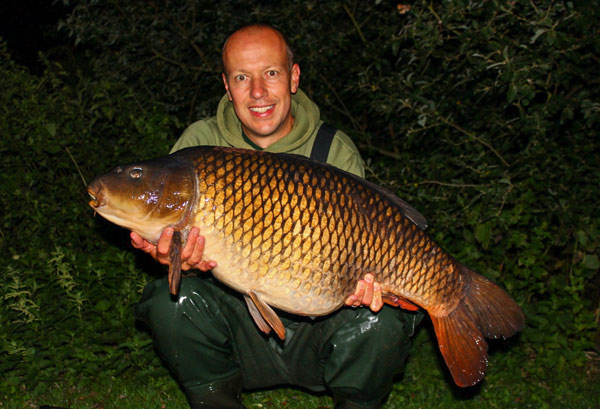
The welcome result of spending my time listening in the dark!
Like what you see?
Or buy a single issue
- Log in or register to post comments


